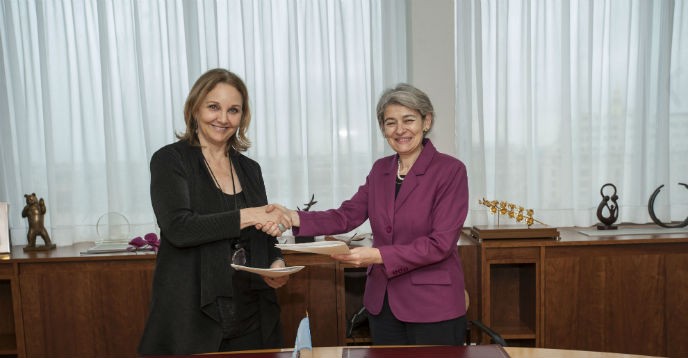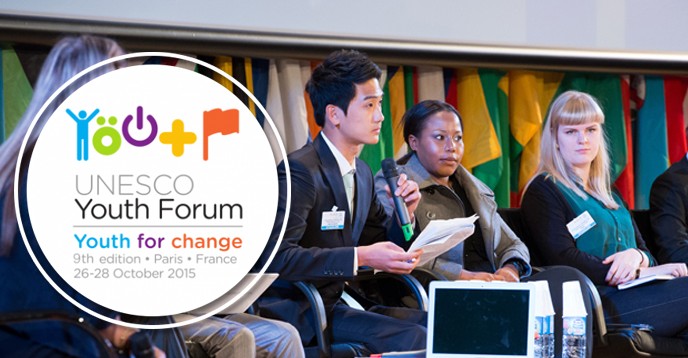Democracy and Global Citizenship
At each of the key moments that have marked contemporary history, UNESCO has supported the peaceful development of societies by contributing to the construction and consolidation of democracy, and the development of democratic institutions, especially in times of transition.
Since its foundation, the Organization seeks to promote the aspirations of all people, especially young women and men, to strive for the realization of shared universal values, such as tolerance, pluralism, the respect of human rights, freedom and dialogue.
While underlining the decisive role of education and human rights, UNESCO focuses on issues such as governance, democratic institutions, citizenship, freedom of expression, representation of young women and men, and their active participation in decision-making processes, in socio-economic and cultural development. The Organization is inherently a place for democratic debate, a platform for exchanges where democratic values are promoted, including tolerance, pluralism, and respect for human rights, freedom and dialogue.
Education for peace and human rights is a fundamental building block in this process as a catalyst for fostering global citizenship.
On the ground, UNESCO is committed to actively participate in the consolidation of a democratic culture, especially by assisting countries in the Arab region, with special emphasis on capacity building of young women and men in civic education, civic engagement and human rights with the aim of practical participation in the development of a community governed by democratic institutions.
UNESCO’s focus on education for global citizenship goes hand in hand with a broader commitment to build democratic institutions, encourage the active participation of all people, including young women and men in decision-making and development processes and in the protection and promotion of human rights.
UNESCO’s work in the field of peace and human rights education builds knowledge and understanding of internationally shared values and supports the development of good policies and practice that help create safe learning environments, free from discrimination and violence.
UNESCO works with other UN and civil society partners in the promotion of the World Programme for Human Rights Education. It supports the integration of education for peace and conflict prevention into national education policy and curriculum; tackling many challenging issues within education, such as access to quality textbooks free from stereotypes, anti-bullying and non-violence.
UNESCO is a global leader in the field of education for holocaust remembrance and genocide prevention, helping communities deal with difficult pasts and (re)build shared democratic structures.
The Organization advocates for non-discrimination in education and teaching respect for all.
Inclusive quality education is a central to UNESCO’s approach to building citizenship and democracy, including the promotion of multilingual education.
Through its Associated Schools Project Network, UNESCO encourages the exchange of innovative educational practices that directly engage children, teachers, schools and their local communities on the most relevant and pressing issues of the day.








